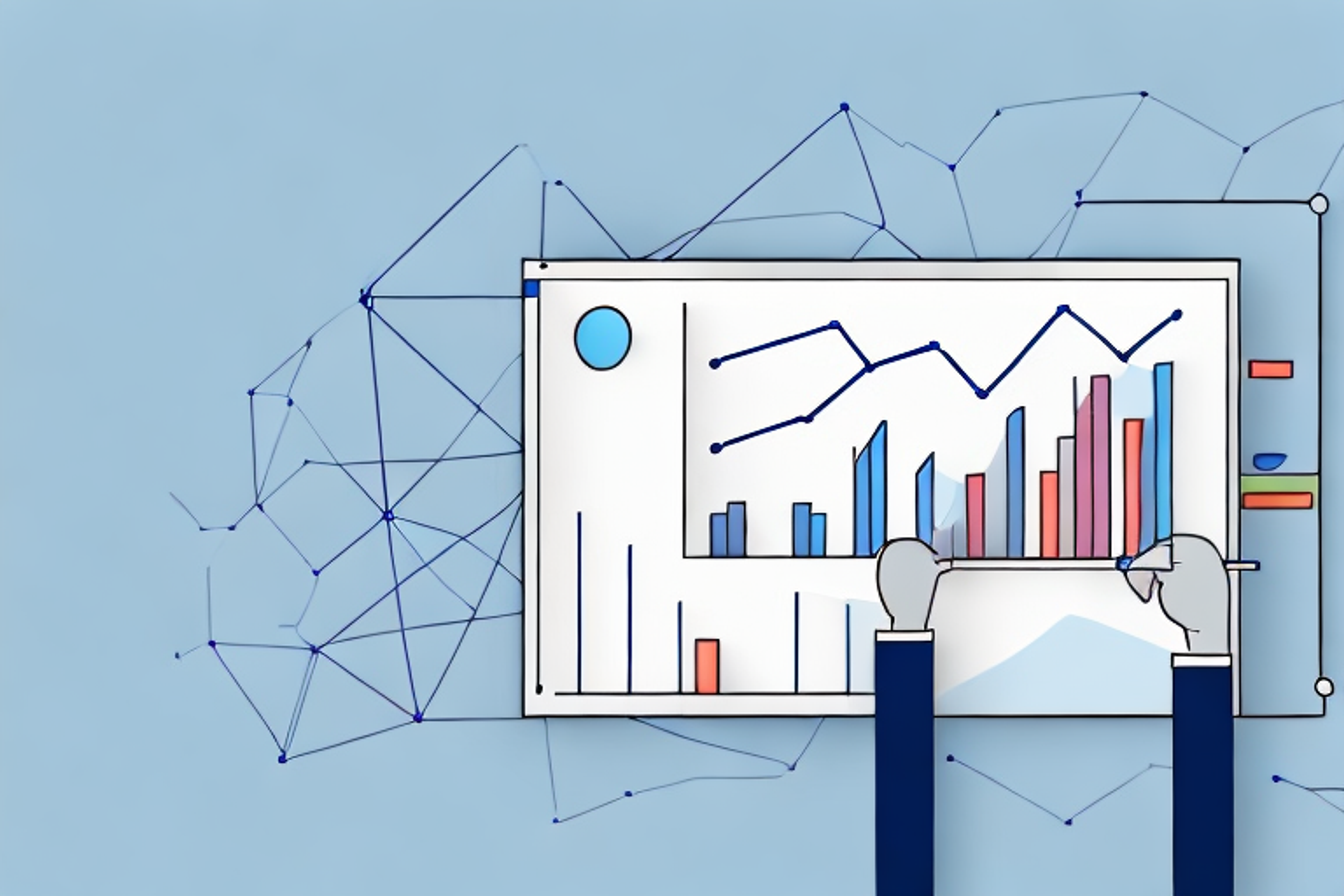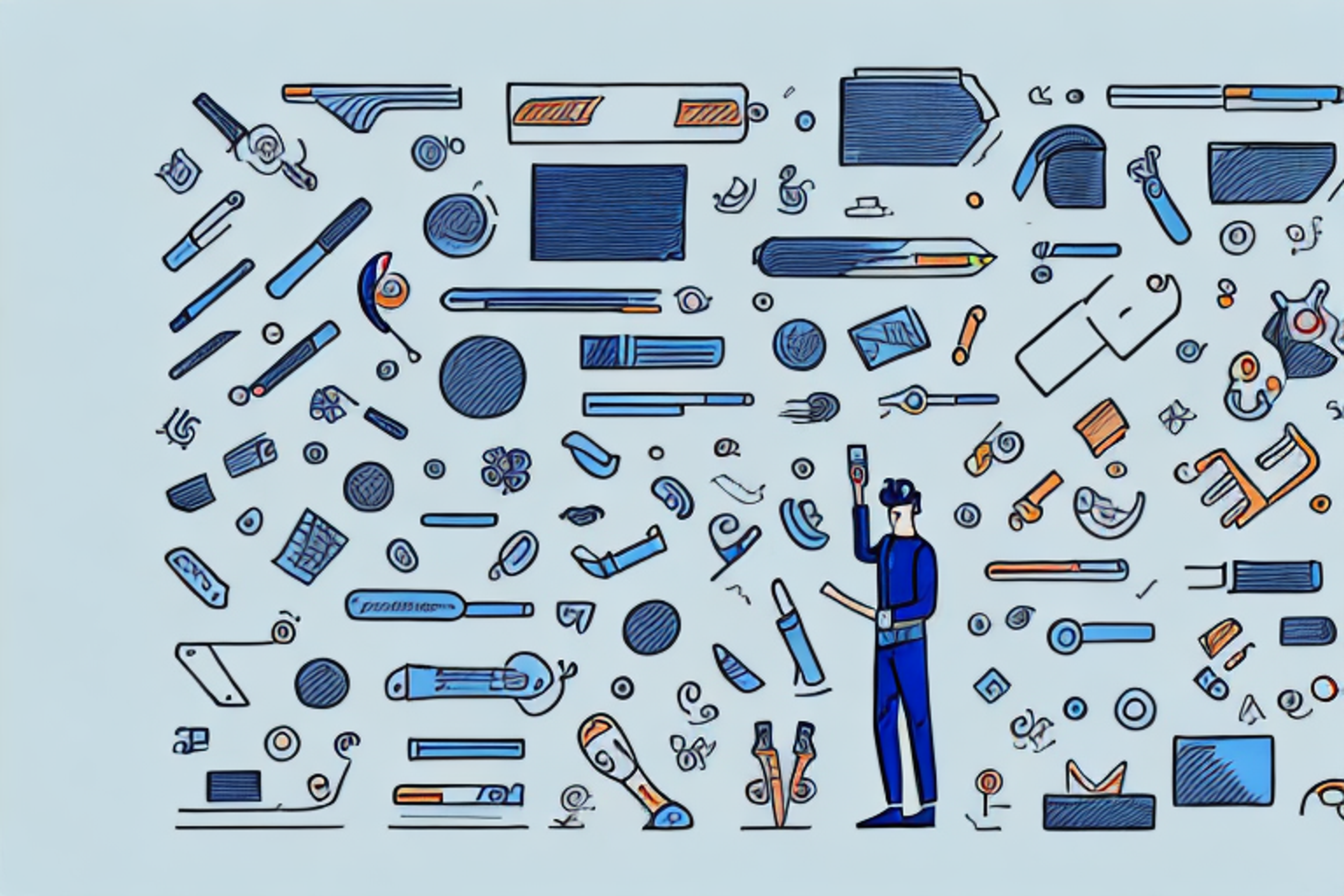How to Get Into the Meta RPM Program (2025)
Learn how to get into the Meta RPM program in 2025—from eligibility and resume tips to interview prep and insider advice from past RPMs.
Posted August 26, 2025

Table of Contents
The Meta RPM program is one of the fastest tracks to a career in product and one of the most competitive. If you’re aiming to land a spot in 2025, this guide will show you how to do it: what to expect, how to prepare, and how to craft an application that actually gets noticed. You’ll also hear insider advice from past RPMs and Leland coaches who’ve helped candidates succeed.
What is the Meta RPM Program?
Rotational Product Management (RPM) Programs are a way for aspiring product managers to gain real-world experience and exposure by working in a few different areas within a company. The Meta RPM Program consists of three rotations over a total of 18 months, which also includes a month-long training bootcamp and a two-week global research trip. It is a full-time program and will lead to continued full-time employment upon completion.
During the program, RPMs will work on high-priority projects across the different families of apps underneath the Meta umbrella, including Facebook Marketplace, Facebook Gaming, WhatsApp Payments, Oculus VR, Instagram Stories, and more. They will work closely with more senior PMs and participate in mentorship initiatives, like “RPM Circles,” to build relationships and collaborate to identify problems and opportunities.
Three of the Meta offices support the RPM program this year, including Menlo Park, New York City, and Seattle. The locations are remote-friendly, though the participant must have the correct work authorization.
See other APM/RPM programs at top companies here: Top 25 APM Programs
Overview of the Meta RPM Program Application
The Meta Rotational Product Manager Program is now live and accepting applications through August 29 at 5pm PST.
Here is what the job posting states:
Responsibilities
- Support the ideation, technical development, and launch of innovative products.
- Establish a shared vision across the company by building consensus on priorities leading to product execution.
- Define and analyze metrics that ensure the success of products.
- Engage in all stages of a product’s lifecycle and drive product development.
- Incorporate data, research, and market analysis to inform product requirements.
- Collaborate with engineers and designers from ideation, technical design, and development to the testing, production, and release of the product.
- Design, develop, and modify product specifications to ensure Meta products are successful.
Qualifications
- Requires a Master’s degree in Computer and Information Technology, Engineering, Data Analytics, or Data Science, or a related field (Foreign equivalent accepted). Completion of a graduate-level course, research project, or internship involving the following:
- Statistical and machine learning models for analysis
- Visualization tools, including the design of interactive systems
- RStudio, including digital marketing analytics
- Python Programming
- CNN Modeling
- and Financial Modeling, including budgeting and financial planning.
Read on for more tips on how to ace the interview process, then book a mock interview with a PM coach.
Meta emphasizes that applications are reviewed on a rolling basis, so those waiting to hear back should be patient in receiving next steps. Also, it’s important to be aware that you can only submit three applications to Meta every six months. Conserve your applications for the roles that you feel you are the best fit for.
The application requires that interested individuals submit their resumes and respond to a few short-answer questions. After the resume has been submitted, the questions will be sent via email. They must be answered within 24 hours and will take approximately an hour to complete.
Those whose applications pass the initial round will enter the interview process, which includes a behavioral phone screen and then several rounds of more technical interviews. Questions are grouped into three buckets: execution, product sense, and leadership/drive. On its website, Meta says the following regarding what they’d like to see in applicants:
“Specifically, we will be looking for how you structure your approach to a problem (e.g., using a framework to think methodically), your ability to consider tradeoffs, how you empathize with users and think about different user segments, and how creative or innovative you might be in your response.”
It also recommends two books that will aid aspiring PMs in preparing for this and future interviews: Cracking the PM Interview and Decode and Conquer. These books will provide an idea of PM interview structures and objectives and help you nail yours, with one caveat. Some sites advise that these books are out of date, so read them with a grain of salt. They can teach you how a product manager thinks and give you example questions; however, don’t blindly accept everything that they say.
Who is Meta Looking For?
There aren’t many must-have qualifications for the RPM program, though it does target those with little to no product management experience. Candidates do not need to have any technical experience and can come from a wide variety of backgrounds. Both recent graduates and those with a few years of (non-PM) full-time work experience are welcome to apply. Because the problems that PMs will work on are complex and diverse, Meta aspires to build teams that are equally so. Applicants should highlight the unique perspectives, skills, and experiences that they bring.
The specific traits that Meta is looking for in successful RPM applicants include analytical, problem-solving, leadership, organizational, and communication skills. They should be able to make informed decisions from data, help others play to their strengths, and prioritize tasks in a fast-paced environment.
Some backgrounds that Meta looks for that have higher success rates in getting interviews include civic engagement, consulting, and entrepreneurship. Align your experiences to both specific product and project management skills and tie your story into Facebook’s mission and values. The RPM program’s values include impact, growth, and community, among others.
Application Tips
So, how can you make your Meta RPM application stand out? Here are a few tips for giving yourself the best chance at success.
1. Polish your resume.
The RPM program at Meta is extremely competitive. Most applicants (90%+) who submit their resumes will not get an interview. The best way to try and get one is to have a great resume. Make your bullet points specific to what you did, quantify your impact, and avoid filler or vague words.
Unless you went to a top-tier school, the education section should go underneath your experience section. Verify that every bullet point is relevant to the job you’re applying for and tie them into the role’s responsibilities. Many PMs also choose to include a “Projects” section on their resumes in which they can fill potential gaps, highlight work done outside of a day job, and include any certifications/courses completed.
For more resume advice, read An Expert’s Guide to Resumes: Five Tips to Make You Stand Out.
2. Be ready to answer “Why PM?” and “Why Facebook?”
These are fundamental questions that will impact whether the recruiter sees you as eligible to continue the interview process. While you don’t need to have technical experience, you do need to be able to articulate your interest in technical disciplines. When answering the “Why FB?” question, be specific. Don’t just talk about how big Facebook is. What specific teams and/or products are you interested in? Why Facebook compared to other major PM programs?
Read: Tips from an Expert: How to Prepare for Your Product Management Interview
3. When answering questions about products and product features during interviews, talk about tradeoffs.
Almost every aspect of product management includes discussions of tradeoffs. How will releasing one feature affect others? What should the engineering team prioritize? Bringing up tradeoffs in interviews shows the interviewers that you are thinking logically about the real implications of PM decisions. It will also show that your recommendations can be trusted because you have thought out the pros and cons.
4. Don’t try to analyze every potential aspect of a problem/question. Show that you understand the question through a north-star goal and then define any relevant metrics.
Your time during interviews is limited, and it’s important that you’re getting to the point and covering all the bases. When asked a question about a product, explain the overarching goal as well as what metrics you would need to measure to reach that goal. If the interviewer pushes back, explain your assumptions and reasoning.
With that being said, don’t overwhelm the interviewer with every potential metric that could be relevant. Keep it narrowed to the most important ones and include justifications for why you chose them. What will actually drive success? What user behaviors are you looking to encourage?
5. Use a framework and think about the user experience.
Using a framework to structure the problem will show the interviewer that you approach problems methodically and are organized in your thinking. This includes talking about prioritization. If you’re discussing the implementation of a new feature, talk about the pros and cons of different solutions and what would need to be prioritized for each approach to work.
The user experience is the core of product management. Consistently factoring it in, through identifying desired user behavior and target user segments, demonstrates that you recognize the importance of the user in every product decision.
Read:
- Moving Beyond Frameworks: The Secret to Excelling in Product Management Interviews
- Product Sense: What it Is & How to Develop It
- 20+ Free Product Management Resources
- The Best Newsletters & Podcasts for Product Management
6. Bonus - Check out these packages
- Meta PM Interview Package - with a Former Meta PM
- Product Management Interview Prep Package - with a Former PM at eBay, Expedia, and Adobe
- 3 Hours of PM Coaching - with a Former Facebook/Meta PM and Harvard MBA
- PM Resume Review - with a PM at Square
50+ Sample Product Management Interview Questions
Facebook-Specific Questions
Product Sense
- What is your favorite Meta product? Why?
- How would you improve ________? (For example, Instagram ads)
- How would you monetize WhatsApp?
- Imagine you are a PM for Facebook Messenger. What would you build first?
- How would you build a product for news on Facebook?
Execution
- How would you measure the success of Facebook dating? What about Facebook events?
- Friend requests are down 8%. How would you approach this problem?
- If you were the lead PM of WhatsApp payments, what goals would you set and what would you prioritize?
- You’re the PM over Instagram stories and want to decrease their expiration time. What metrics would you analyze before making this decision?
- If you were the PM of Facebook Newsfeed, how would you decide whether to autoplay videos or not?
- Should Uber Rides be a different app from Uber Eats?
- How would you prevent misinformation on Facebook?
- How would you improve buy and sell groups on Facebook?
- Should we remove the requirement to add a profile photo upon sign-up?
Leadership & Drive
- How do you resolve conflicts instead of avoiding or ignoring them?
- How have you solved a challenge, whether or not it was technically your problem?
- Can you adjust your leadership style to specific situations and people? Are you able to encourage collaboration and reconcile differences among opposing opinions?
- Do you know what your weaknesses are? Are you willing to learn and grow?
- Are you able to stick to things long-term?
- Can you get things done with limited resources because you have other motivations?
Other Example Questions
- What Facebook products could be improved by showing location information, and how?
- What is your favorite product and why? How would you improve it?
- Tell me about a project that you worked on that you are proud of.
- How would you design a voice assistant product for kids?
- Tell me about a time when you disagreed with your supervisor/manager. How did you handle it?
- In your opinion, what are the most important traits for success as a PM?
- How would you build a product to help people discover candy from all over the world?
- How would you design a Facebook product that would help people become healthier?
- When did you last have a disagreement with a coworker? How was it resolved?
- What Facebook product could help with crisis management? How?
- Tell me about a time when you successfully delegated the responsibilities of a project.
- What was a time that you failed an aspect of a project that you were working on?
- If you were asked whether Facebook Dating should be launched or not, how would you approach the question?
- How would you measure user satisfaction with Google Maps?
- If WhatsApp Payments launched a new feature that caused UK revenue to increase but Thailand revenue to decrease, what would you investigate?
- How would you improve Facebook birthdays?
- How would you build a Facebook social travel product? What user segment would you target?
- If 75% of iOS users use Instagram but only 45% of Android users do, what would you investigate?
- Should Facebook enter the jobs market? Why or why not?
- Design a product to help Facebook users find good doctors.
- How would you set goals and measure success for Facebook notifications?
- If you were the PM of the Facebook newsfeed, how would you rank posts?
- What is a product that you led from idea to launch?
- Tell me about a time you made a decision that wasn’t popular. How did you implement it?
- When have you had to convince someone on your team of an idea you had?
- When did you last show initiative?
- What is your favorite website? Why?
- How would you design a bookshelf for kids?
- How would you design a new park for your neighborhood?
- Choose a target audience that you don’t think is well-served by Facebook. How would you redesign Facebook to better appeal to and serve that user?
- How could you integrate Facebook products into a car?
Other Resources to Break Into Product Management
Facebook-specific:
- Panmore Institute – An Analysis of Facebook’s Culture
- Meta – Investor Relations/Financials
- Meta – Product News
- Meta – Culture Trend Report
Books:
- IGotAnOffer – A Review of Popular PM Books
- Melissa Perri – Escaping the Build Trap: How Effective Product Management Creates Real Value
- Dan Olsen – The Lean Product Playbook
- Rich Mironov – The Art of Product Management
- Marty Cagan – Inspired: How to Create Tech Products Customers Love
PM Guides:
- Aha! – Product Management Guide
- Udacity – Product Design by Google
- Infinity – Practical Product Management Framework
- Jeff Whitlock – The Beginner’s Guide to Product Management
- Product School – The Ultimate Product Management Guide
- Product Life – The Associate Product Manager Playbook
Other:
- Roadmunk – 10+ Free Customizable Product Roadmap Templates
- UpGrad – How to Crack the PM Interview
Where Can I Start?
Product management is becoming an increasingly competitive tech industry, and the application process can be difficult to go through alone. For personalized advice and guidance, work one-on-one with an expert Leland PM coach. They have experience at top companies and can help with any part of the application, recruiting, and hiring processes. A few of our top recommendations are below, and you can see our full list of world-class PM coaches here.
See: The Top 10 Product Management Consultants & Coaching Services
Here are some of our additional PM resources to help you navigate the job hunt and recruiting journey. See our other APM guides here:
- How to Get Into the Google APM Program
- How to Get Into the Uber APM Program
- How to Get Into the IBM Associate Product Manager (APM) Program
- How to Get Into the Yahoo APM Program
- How to Get Into the Lyft APM Program
- How to Get Into the Salesforce APM Program
FAQs
Is Meta RPM hard to get into?
- Yes, it's extremely competitive. Meta doesn’t release official acceptance rates, but it's estimated that less than 2% of applicants get an offer. That’s why having a standout resume, a clear “Why PM” story, and a sharp product sense is key.
Do I need a technical background to get into the Meta RPM program?
- No. You don’t need to know how to code or have a CS degree. Many successful RPMs come from non-technical backgrounds like consulting, education, civic tech, or even the arts. Meta looks for analytical thinking, user empathy, and leadership, more than hard technical skills.
How do I stand out in the Meta RPM application?
- Tailor your resume to show real impact, not just responsibilities. Use metrics. Tell a clear story around why you want to be a PM and why at Meta. Emphasize frameworks, product thinking, and your ability to navigate ambiguity, especially in your interview prep.
What kinds of interview questions does Meta ask for RPM?
- They typically ask behavioral, product sense, and execution questions. Think: “How would you improve WhatsApp?”, “What metrics would you use to measure success for Facebook Dating?”, and “How would you handle a decline in friend requests?”
How long is the Meta RPM program?
- It’s an 18-month program with three 6-month product rotations. It also includes a month-long onboarding bootcamp and a two-week global research trip.











